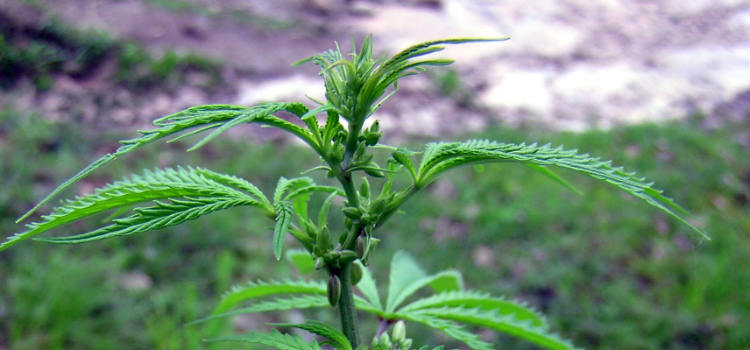Progress toward industrial hemp farming in Oregon has been slow. Just two people have applied and federal drug laws have dogged the state’s attempts to get any seed into the hands of the would-be farmers.
“There are a whole lot of hoops to get through before we actually have seed on the ground in Oregon,” Ron Pence, the Department of Agriculture’s operation manager, commodity inspection said. “I believe we’ll get it…I am doing everything I can to get through the permitting process.”
So far just one of the applicants has been granted a license but Pence is convinced that the second application will “most likely” be approved. The Agriculture Department has been working with Oregon State University in an effort to procure hemp seeds but the Drug Enforcement Agency has thus far prevented them from doing so. The DEA has a permitting process by which seed can be obtained but the state has not yet been granted the permit. Because of this roadblock, Pence says he wouldn’t recommend the investment of $1,500 licensing fees for farmers yet until they know they can get seed. In addition to the license fees, farms producing hemp seed for propagation are charged another $500 per year. Inspection fees for all farmers, charged for inspecting hemp seed warehouses and testing the farm’s soil and produce – part of the state’s deal with the feds – is billed at $2.00 per hour.
Once the state’s application is approved by the feds, OSU would possess and distribute the hemp seed.
Pence says it is still unclear exactly how much of an economic boon the industry would be to farmers or the state via fees and taxes. A May 2014 report by University of Kentucky’s College of Agriculture, Food and Environment found that in a low-price scenario fiber-only farms could lose $314 per acre but high-production seed farms could earn $202. In a high-price scenario fiber-only farms could still lose money, an estimated $52 per acre, but earn up to $622 per acre.
Citing climate and the differences in their respective statutes, Pence suggests that the UK report is not indicative of the would-be market in Oregon.
“What may produce well in Kentucky may not produce well in Oregon,” he said. “There are just too many unknowns… It’s two different states.”
Oregon’s Legislative Revenue Office found “no revenue impact” after their review of the industrial hemp bill (SB676). The legislature provided $67,000 to the ODA to implement the program and approved another $170,000 for a full-time Natural Resource Specialist. The funds were used to fund the year-long rule making process. That expensive process included “countless” trips to the Department of Justice by members of their rules committee, lawyers’ fees and staff salary, Pence said.
As the ODA progresses through the application process, Pence said he and his OSU colleagues have had more interest from “mainstream producers” which would be advantageous to the currently infinitesimal and struggling industry.
“I’m hopeful that hemp takes off … not necessarily because it’s hemp… but I’m an advocate for agriculture,” Pence said. “I’m always excited by other opportunities for our farmers to have a new crop and potentially put a few bucks in their pocket.”
Photo Credit: Simon
Get daily cannabis business news updates. Subscribe
End
